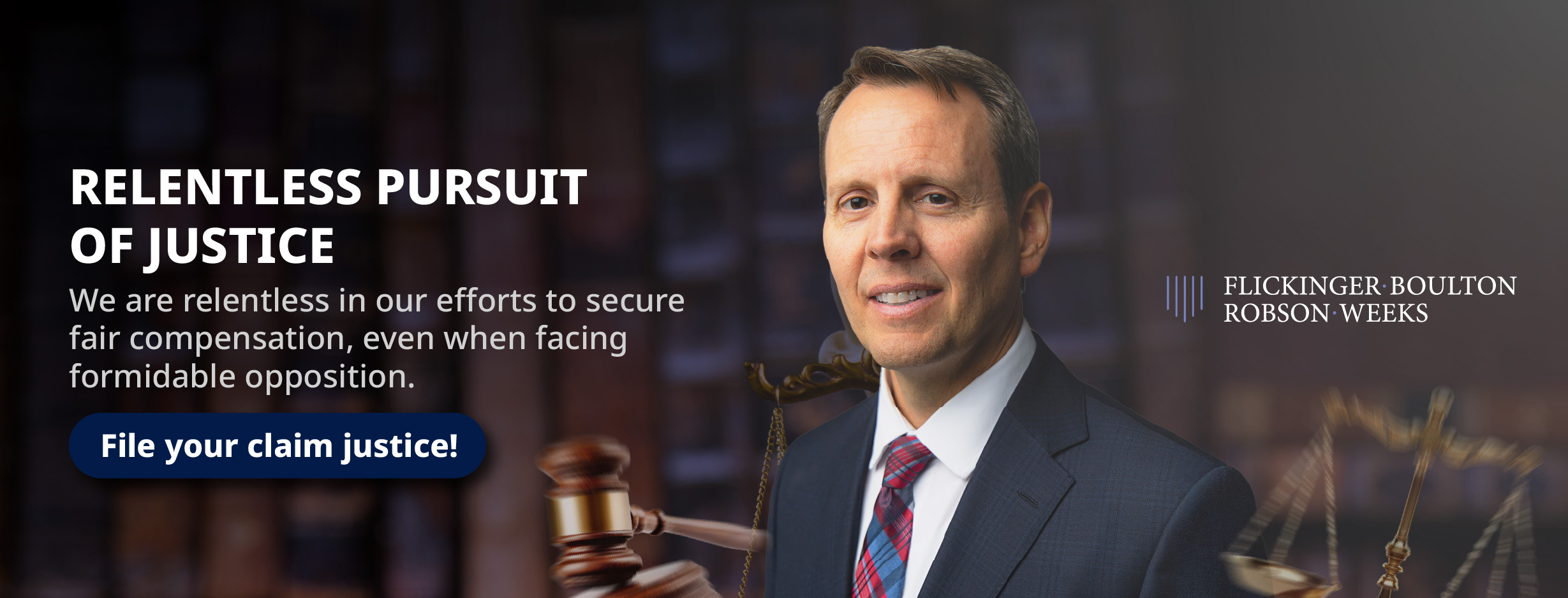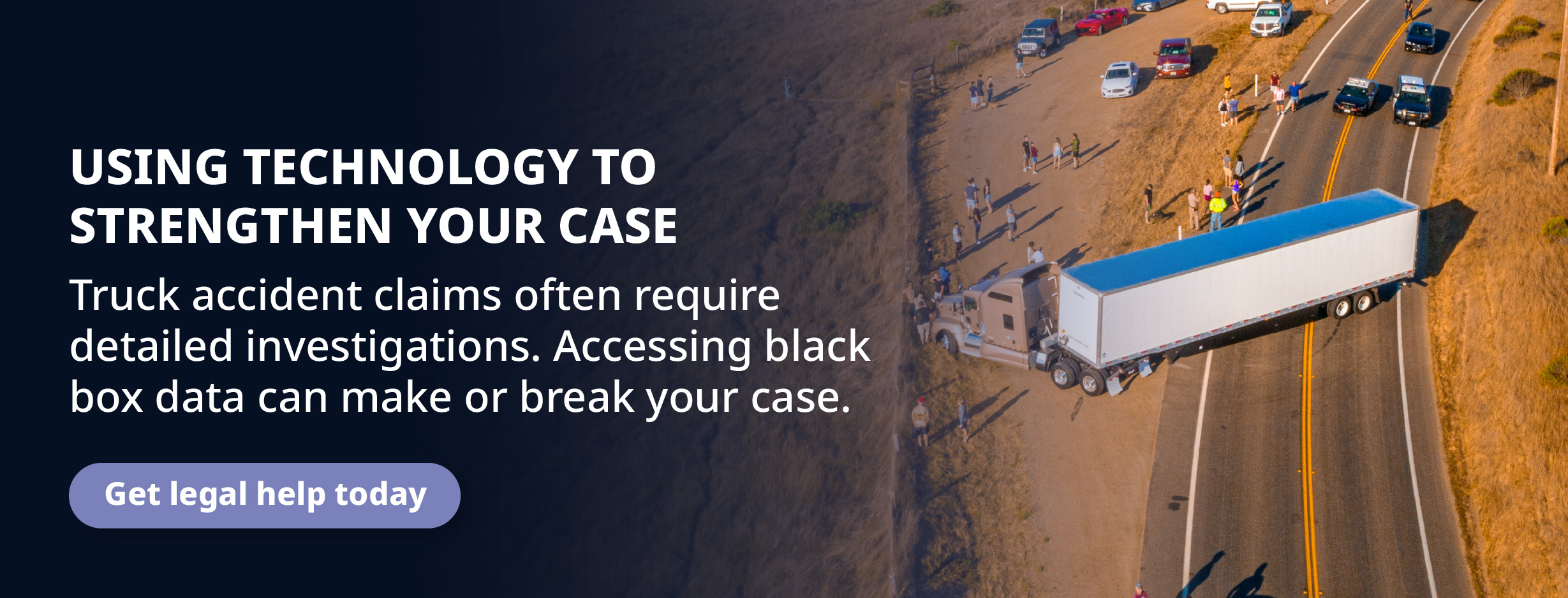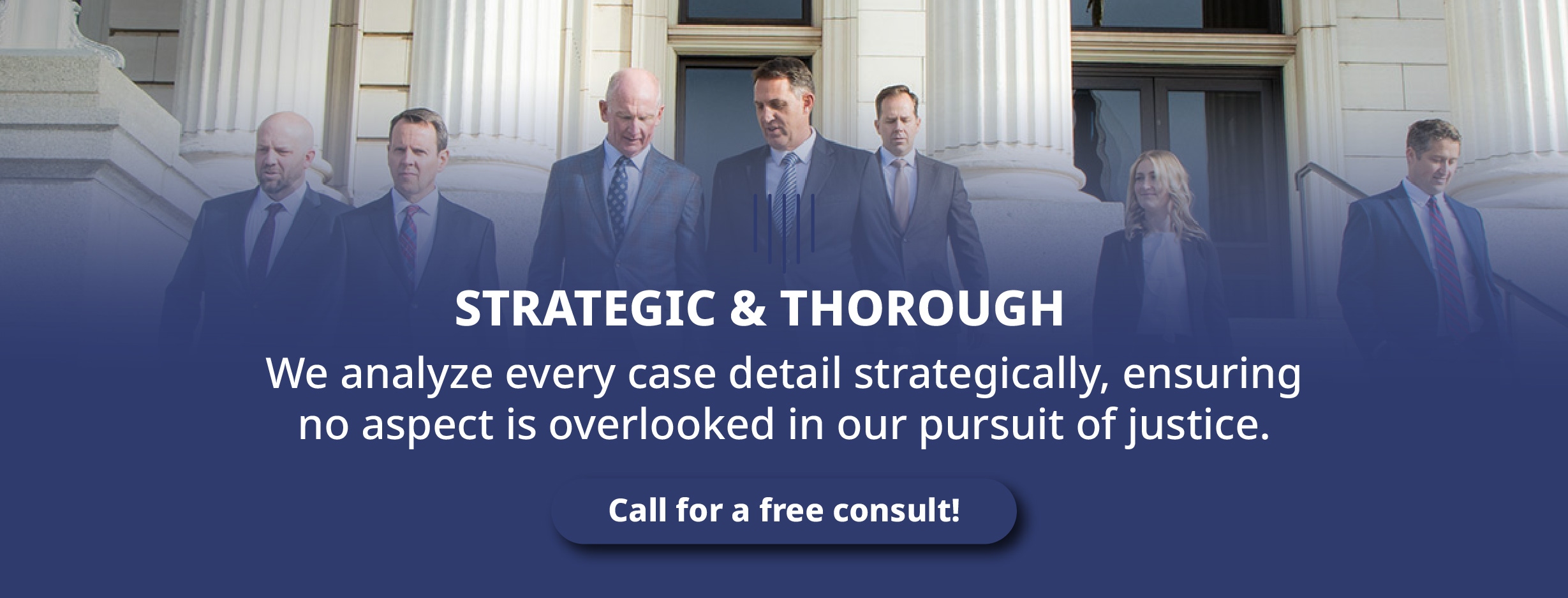In the aftermath of a truck accident, uncovering the truth about what happened is essential for determining liability and securing fair compensation. One of the most valuable pieces of evidence in these cases is the truck’s black box data, also known as the Electronic Control Module or Event Data Recorder. This device captures crucial information, such as speed, braking patterns, engine performance, and driver behavior leading up to a crash.
At Flickinger Boulton Robson Weeks, our experienced Lehi truck accident lawyers understand how to obtain, interpret, and leverage black box data to strengthen your case. Whether proving negligence, countering insurance company defenses, or ensuring you receive the compensation you deserve, we use this critical evidence to build a compelling claim on your behalf.
A truck’s black box, formally known as an Electronic Control Module or Event Data Recorder, is a critical device installed in commercial trucks to record key driving data. Similar to an airplane’s black box, this system continuously collects and stores information about the vehicle’s operation.
In the event of an accident, black box data can provide invaluable insights into the cause of the crash and help establish liability. While most modern commercial trucks are equipped with black boxes, the specific data they record may vary depending on the truck’s manufacturer and model.
A truck’s black box collects and stores a variety of information, including:
Black box data serves as objective evidence that can either support or challenge witness testimony and accident reconstructions. Unlike human memory, which can be flawed or biased, this electronic data provides an accurate timeline of events leading up to a crash.
This information is especially useful when a trucking company or insurance provider disputes liability, as it can reveal whether the driver was exceeding speed limits, violating trucking regulations, or failing to respond appropriately to road conditions.
At Flickinger Boulton Robson Weeks, we have the experience and resources to obtain and analyze black box data, ensuring that our clients in Lehi have the strongest possible case for compensation.

When a truck accident occurs, determining who is at fault can be a complex process. Unlike car accidents, where liability may be based on eyewitness statements or police reports, truck accidents often involve more parties, such as the truck driver, the trucking company, and even third-party maintenance providers.
This is where black box data becomes crucial. The truck’s Electronic Control Module or Event Data Recorder provides objective, time-stamped evidence that can clarify the circumstances leading up to a crash and help determine liability.
Black box data is instrumental in proving fault because it records real-time vehicle performance metrics, which can either support or contradict other evidence. Some of the most important ways black box data can help in truck accident investigations include:
Black box data is difficult to dispute, making it one of the most powerful tools in a truck accident claim. Our team at Flickinger Boulton Robson Weeks uses this data to build strong cases for victims in Lehi, ensuring they have the best chance of securing the compensation they deserve.
The black box, or Electronic Control Module, in commercial trucks, is one of the most valuable sources of evidence in a truck accident case. However, obtaining and analyzing this data requires navigating legal hurdles and technical challenges.
Victims of truck accidents in Lehi need an experienced legal team, like Flickinger Boulton Robson Weeks, to secure and interpret this crucial evidence before it is lost, altered, or destroyed.

Identifying Ownership and Access Rights
Truck black box data is not automatically available to accident victims. Typically, it’s the trucking company or the driver who own and can access it, and retrieving it requires legal intervention. Unlike police reports or witness statements, black box data is often protected by corporate interests that may attempt to delay or block access.
Issuing a Legal Preservation Letter
Time is of the essence after a truck accident. Trucking companies can erase or overwrite black box data within a matter of weeks. To prevent this, a legal preservation letter (also called a spoliation letter) is sent to the trucking company. This letter demands that all relevant data be preserved and warns against any destruction or tampering. If the company fails to comply, it could face legal consequences, including sanctions for evidence destruction.
Filing a Court Order or Subpoena
If a trucking company refuses to release the black box data voluntarily, a lawyer must file a court order or subpoena to compel them to provide access. This legal action ensures that critical data is retrieved before it is lost or altered.
Securing an Independent Professional to Extract the Data
Even after obtaining access to the black box, extracting the data is a highly technical process. Specialized equipment and knowledge are required to download and interpret the information. Lawyers work with accident reconstruction experts or forensic specialists to ensure the data is retrieved accurately and without corruption.
Once retrieved, black box data provides detailed insights into what happened before, during, and after the crash. Attorneys and forensic experts analyze this data to determine liability and support injury claims. Some key factors examined include:

Data Deletion or Tampering
Trucking companies may intentionally delete or overwrite black box data to avoid liability. Some systems automatically overwrite old data after a certain period, making timely legal action essential.
Complexity of Data Interpretation
Black box data is not user-friendly and requires experts to analyze and convert it into meaningful evidence. Lawyers must work with specialists who can explain the findings in court.
Legal Hurdles from Trucking Companies
Trucking companies and insurers often fight subpoenas or attempt to limit access to black box records. Having a skilled legal team is crucial for overcoming these obstacles.
At Flickinger Boulton Robson Weeks, we understand the importance of black box data in truck accident cases. The information stored in a truck’s Electronic Control Module or Event Data Recorder can provide crucial evidence about the moments leading up to a crash, helping to establish liability and support injury claims.
Many trucking companies and insurance providers may attempt to dispute fault, but our firm leverages black box data to build strong cases for our clients.
Obtaining black box data is not automatic and often requires legal intervention. Trucking companies may withhold, delete, or overwrite this information to avoid liability. To ensure this evidence is preserved and accessible, our firm follows a strategic legal process:
Sending a Preservation Letter
Filing a Subpoena or Court Order
Working with Forensic Professionals
Acting quickly and decisively prevents trucking companies from destroying or altering vital evidence that could make a difference in a case.
Our team of Lehi truck accident lawyers can help you file a claim in timely fashion, and walk you through every step of the process in the aftermath of the accident.
One of the biggest challenges in truck accident cases is proving fault. Trucking companies and their insurers often try to shift blame onto the victim or claim that external factors were responsible for the crash. Black box data provides objective proof that can counter these arguments.

Beyond proving fault, black box data can also help establish the severity of an accident, which is critical when pursuing compensation.
While black box data is incredibly valuable, there are several challenges in obtaining and using it effectively. Our firm has extensive experience in overcoming these hurdles.
At Flickinger Boulton Robson Weeks, we understand that truck accident victims face an uphill battle against powerful trucking companies and their insurers. Black box data is one of the most compelling tools in securing justice, and we have the knowledge, resources, and determination to use it effectively.
If you or a loved one has been injured in a Lehi truck accident, don’t let trucking companies dictate the outcome of your case. Contact Flickinger Boulton Robson Weeks today to discuss your rights and legal options. We fight for the compensation you deserve.
At Flickinger Boulton Robson Weeks, we understand black box data’s critical role in truck accident cases. As modern trucks are equipped with advanced Electronic Control Modules and Event Data Recorders, this technology offers essential insights that can shape the outcome of your case. Black box data provides an objective and verifiable account of the events leading up to and following an accident, allowing us to craft a compelling case for our clients.
While black box data is a powerful tool, there are potential challenges in obtaining it. In some cases, trucking companies may attempt to alter or delete critical data. However, our firm is experienced in navigating these hurdles and ensuring the integrity of the data is preserved.

At Flickinger Boulton Robson Weeks, we leverage our extensive legal experience and understanding of truck accident cases to effectively utilize black box data. By working with experts, quickly securing data, and analyzing it in-depth, we give our clients the best chance at achieving a successful outcome.
Our commitment to client success drives us to leave no stone unturned. Our Lehi truck accident lawyers meticulously examine every piece of evidence, including black box data, to ensure that our clients are fully supported throughout their cases.
If you’ve been involved in a truck accident in Lehi, let us use cutting-edge technology to help you get the justice you deserve. Contact Flickinger Boulton Robson Weeks today for a free consultation at (801) 500-4000.
Bicycle Accidents
Motorcycle Accidents
Boating Accidents
Recreational Vehicle Accidents
Bus and Mass Transit Accidents
Pedestrian Accidents
Automobile Accidents
ATV or UTV Rollovers
Commercial Vehicle Accidents
Semi Truck and Trailer Accidents
UTAH INJURY LAWYERS
Flickinger • Boulton
• Robson • Weeks
PROVO OFFICE
3000 N University Ave
Suite 300
Provo, UT 84604
SOUTH JORDAN OFFICE
10393 S. Temple Dr.
Suite 103
South Jordan, Utah 84095
OFFICE HOURS
Monday- Friday: 8AM-5PM
Saturday-Sunday: Closed
*Disclaimer: the information provided by this website is for informational purposes only and should not be considered legal advice or a substitute for competent legal counsel.
**SMS consent and contact phone numbers will not be shared or sold to third parties or their affiliates for any purpose.
© 2025 All Rights Reserved.